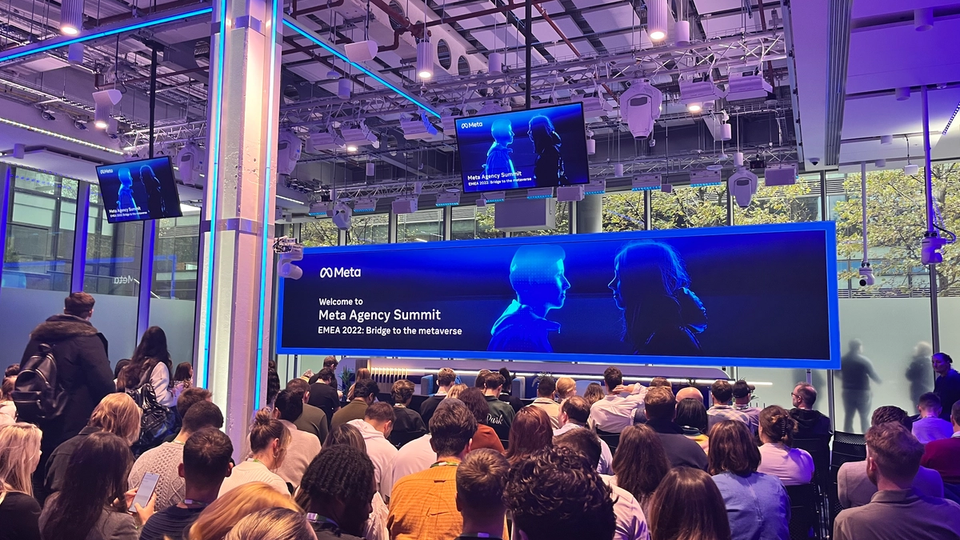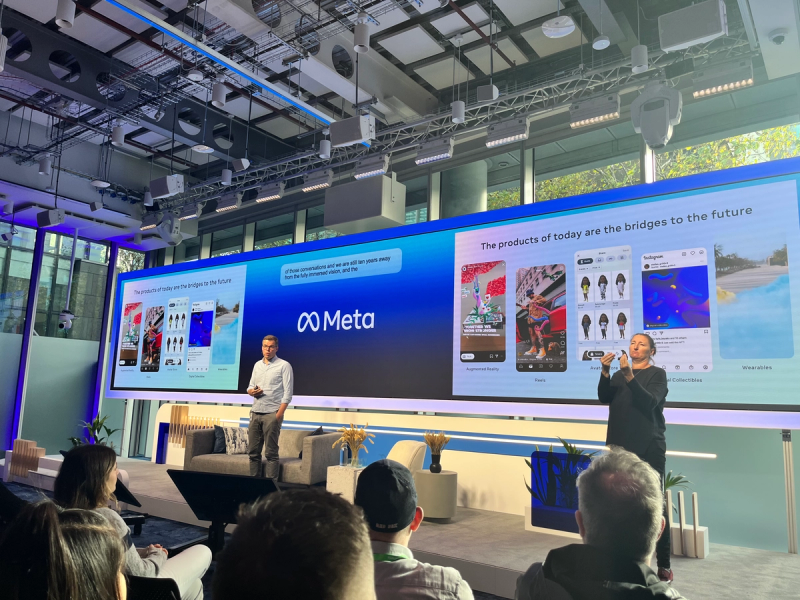Meta Agency Summit 2022 - Bridge to the metaverse
- Company Updates
- Marketer
Last week Marketer was invited by Meta to attend their annual Agency Summit in their London offices. The theme of the event was the “Bridge to the metaverse”, where various speakers covered topics such as launching a brand into the metaverse, how to leverage the metaverse for ad success, and what to expect in the upcoming years.🤖

While there has been lots of attention and opinions surrounding Meta’s extensive investment in developing the metaverse, it is safe to say many of us are unsure about what the metaverse actually is, how we will get there, and what possibilities await us. Kaisa Eidet, Sales & Operation Manager, from our team shares the key insights from the summit below.
What is the metaverse?
One reason why the metaverse can be perceived as mysterious and intangible is that there is no agreed-upon definition nor can the term be found in any dictionaries. Cathy Hakcl, Co-Founder & Chief Metaverse Officer at Journey, describes it as follows:
“The Metaverse makes our world into a combined experience of virtual and physical. In other words, it is about shared virtual experiences that can happen in the physical, as well as the virtual world.”
Within the industry, the metaverse is described as the successor of the internet we know today. The metaverse will consist of and be accessed via several “enabling technologies”, where examples include AR, VR, mobile devices such as headsets, along with AI, blockchain technology and 5G.
What the metaverse is not, is one single technology, nor is it a specific company. Throughout the summit, Meta was clear on this point - while they in many ways have become the symbol of this new technology due to their heavy investments and name change from Facebook - they are only one of the numerous companies who will drive this next technological revolution into fruition.
What can you do in the metaverse?
While the above definition of what the metaverse is and is not may bring some clarity, it can still be challenging to understand what we can actually do in the metaverse and how it can be incorporated into our business strategy.
Meta predicts that the earliest versions of the metaverse will be about experiences - more specifically sport, media and entertainment. A staggering fact that shows how far we have already come in this area was shared by Lauren Chester, Head of Tech Projects, BYTE/Dept. Fortnite, the popular game which by many is described as the first metaverse, is played by twice the amount of kids in America today as football and basketball combined.
Aside from experience, education is an area with lots of potentials. An immersive experience in the metaverse can bring history students back to Athens when democracy was first established, or help medical students practise complex surgery on a virtual body.

What about the real estate industry?
It is still early to predict what opportunities await the real estate industry in the metaverse, but a natural prediction is that we will see the next generation of visualisation tools, specifically for newbuild projects.
While 3D visualisation and property explorers are an essential part of real estate developers' toolkits today, we predict that the metaverse will bring much more complex and immersive experiences where a potential buyer can walk around in a planned project as well as the neighbourhood surrounding it to get a feeling of how it would be to live there. Related, we think that it will become much easier and cost-effective to visualise different interior styles and furniture, which could in turn open up a new revenue stream for developers.
For existing homes, there have already been some companies using VR technology for property showcases. This technology is likely to vastly improve over the next few years. Virtual showcases will be extra beneficial for agents and developers attracting international buyers, where travel is a barrier today. It will also enable agents to do more of their work from the office.
When will we all be living in the metaverse?
While the metaverse is already here in some ways and develops further by the day, Meta is still quite conservative in their timelines. The prediction for a fully immersive experience is still 5-10 years away. That being said, the various building blocks of the metaverse such as VR and AR technology are available today, and forward-leaning companies should start thinking about their strategy today to be prepared for tomorrow’s world.


